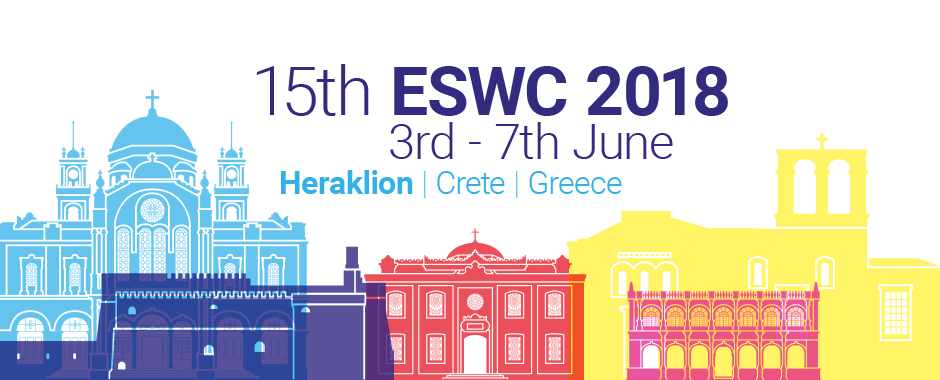Chairs
- Maria-Esther Vidal, Leibniz Information Centre For Science and Technology University Library, Germany, and Universidad Simon Bolivar, Venezuela – Maria.Vidal@tib.eu
- Roberto Navigli, Sapienza University of Rome, Italy – navigli@di.uniroma1.it
- Subtrack Chairs
Scope and Topics
The goal of the Semantic Web is to create a network of data and knowledge that interconnect across the Web, and where both content and its meaning are manipulated by processes, services and applications. This endeavour naturally draws from and impacts on many disciplines of computing (and connected areas), related to data and information management, knowledge engineering, machine intelligence, human knowledge and languages, software services and applications. We are therefore seeking contribution to research at the intersection of the Semantic Web and these areas, as described in the 9 research tracks of the conferences.
In addition to the main focus on advances in Semantic Web research and technologies, ESWC 2018 is looking to broaden the Semantic Web research community’s understanding and focus on problems and areas that directly impact the development of the Semantic Web. Thus, the 15th edition of ESWC 2018 includes 2 additional research tracks: the Benchmarking and Empirical Evaluations track, and the Semantic Web for Science track.
The aim of the Benchmarking and Empirical Evaluations track is to encourage the community to submit papers on results of empirical evaluations of state-of-the-art Semantic Web methods; extensive evaluation using existing benchmarks are expected. The papers of this track should follow the scientific method and ensure reproducibility of the reported results by using analytical modelling and statistical methods. Submissions could report on the verification or refutation of already published results, as well as the empirical comparison of state-of-the-art methods.
Moreover, in the Semantic Web for Science track, submissions presenting domain specific problems that requir e the use of Semantic Web technologies to be solved are expected. Biomedicine, pharmacogenomic, sociology, scholarly, maritime, or journalism are examples of scientific domains. The introduction of this theme integrates well with and builds upon tracks of Semantic Data Management and Machine Learning, and allows for the submission of research papers where novel solutions for the management and analytics of scientific data are required.
Research Subtracks
- Vocabularies, Schemas, Ontologies Chairs: Sofia Pinto, Christoph Lange
- Reasoning Chairs: Jeff Pan, Diego Calvanese
- Linked Data Chairs: Hala Skaf-Molli, Jorge Gracia
- Social Web Chairs: Stefan Dietze, Harald Sack
- Semantic Data Management and Big Data Chairs: Maribel Acosta, Olaf Hartig
- Natural Language Processing and Information Retrieval Chairs: John McCrae, Valentina Presutti
- Machine Learning Chairs: Andreas Hotho, Achim Rettinger
- Mobile Web, Sensors and Semantic Streams Chairs: Themis Palpanas, Intizar Ali
- Services, APIs, Processes and Cloud Computing Chairs: Amrapali Zaveri, Ruben Verborgh
Special Subtracks
- Benchmarking and Empirical Evaluations Chairs: Oscar Corcho, Emanuele Della Valle
- Semantic Web for Science Chairs: Catia Pesquita, Adrian Paschke
Submissions should follow the rules indicated here.
Share on
